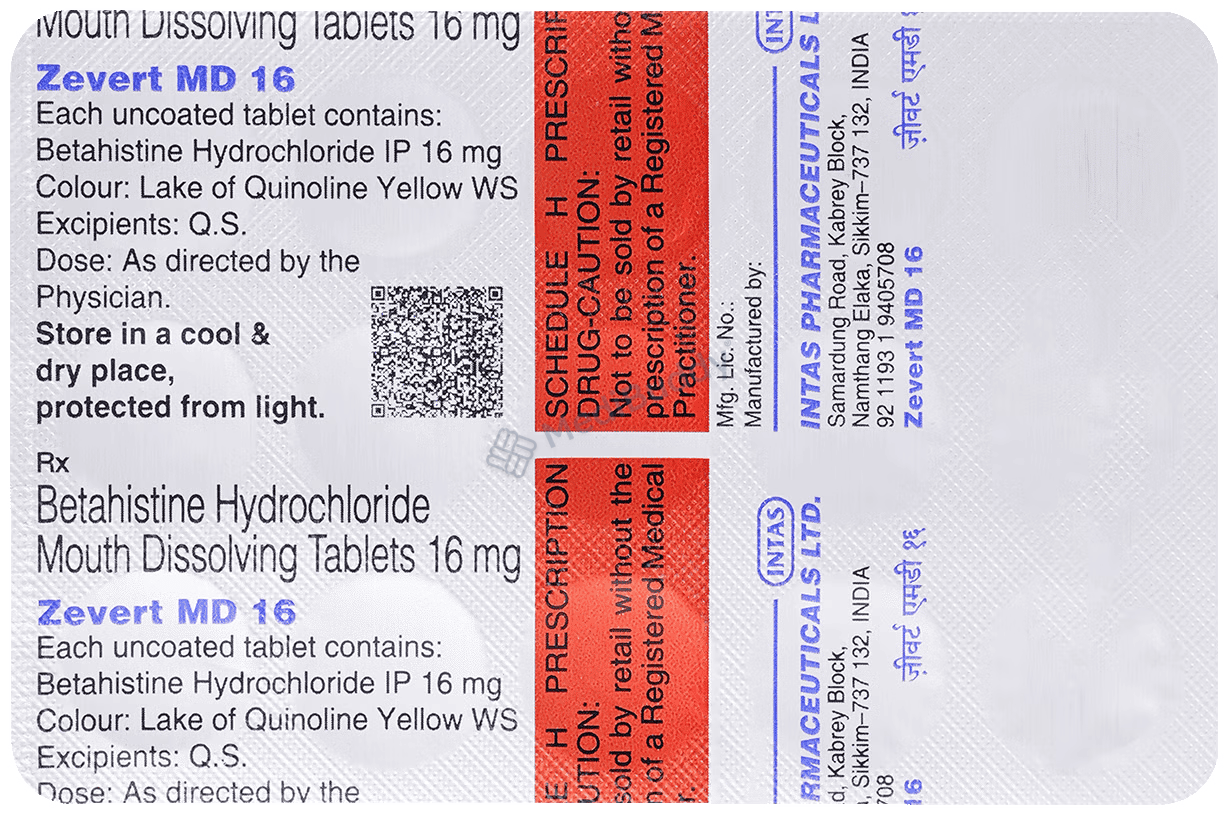Zevert MD 16 Tablet
By Zevert
Rx
15 Tablet MD in a Strip

Composition
Betahistine(16mg)

Manufacturer - Intas Pharmaceuticals Ltd
Chinubhai Centre, Off. Nehru Bridge, Ashram Road, Ahmedabad - 380009. Gujarat. India.

Expires on or after
February, 2026

liver
Limited information is currently available regarding the use of Zevert MD 16 Tablet in individuals with liver disease. Therefore, it is strongly recommended to consult your doctor before using this medication to ensure it is safe and appropriate for your specific liver condition. Your healthcare provider will be able to assess the potential risks and benefits associated with taking Zevert MD 16 Tablet in relation to your liver health, and can provide guidance on the best course of action.

kidney
Zevert MD 16 Tablet is likely safe for patients with kidney disease. It appears that adjusting the dose may not be necessary. It is recommended to consult your doctor regarding its use.

alcohol
It is safe to consume alcohol while taking Zevert MD 16 Tablet as it does not have any harmful side effects.

driving
When taking Zevert MD 16 Tablet, it is typically safe to drive as it does not usually impact your driving ability.

pregnancy
Zevert MD 16 Tablet may not be safe to use during pregnancy as animal studies indicate potential harm to the developing baby. Please consult with your doctor to assess the risks and benefits before using this medication.

breastfeeding
Zevert MD 16 Tablet is considered unsafe for use during breastfeeding. Limited data indicates that the drug may pass into breastmilk and potentially harm the baby.
| Habit Forming | No |
| Chemical Class | Histamine Analog |
| Therapeutic Class | NEURO CNS |
| Action Class | Histamine analog- Meniere's Disease |
₹301.25
Inclusive of all taxes
Content verified by

Dr. Archana Prabhakar
MBBS, M.Med (Family Medicine)
Last update on 01-Oct-2024





